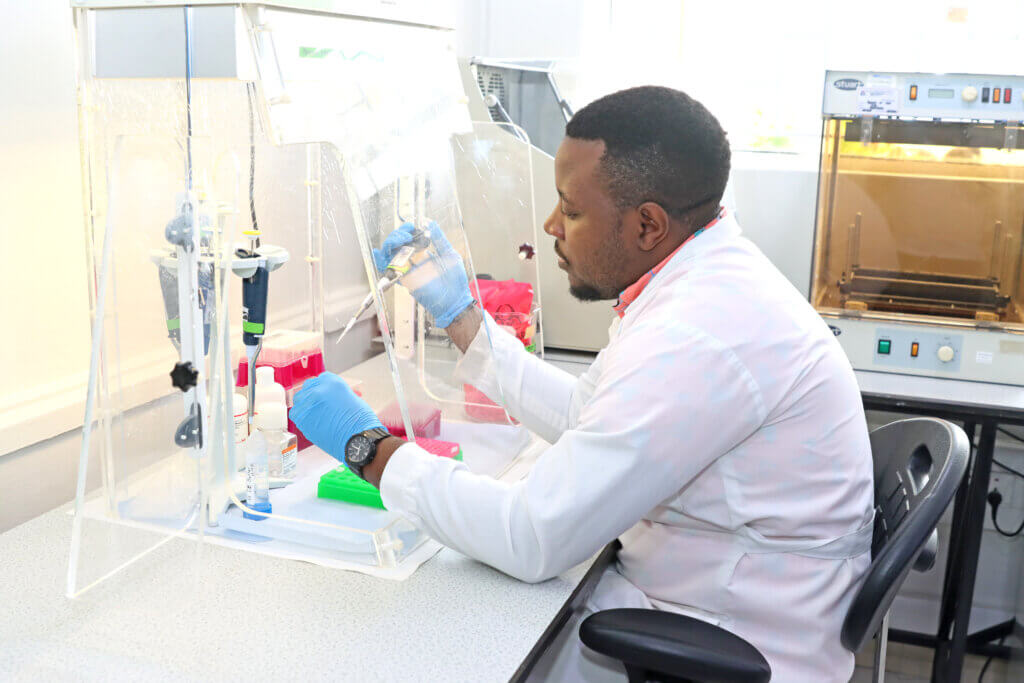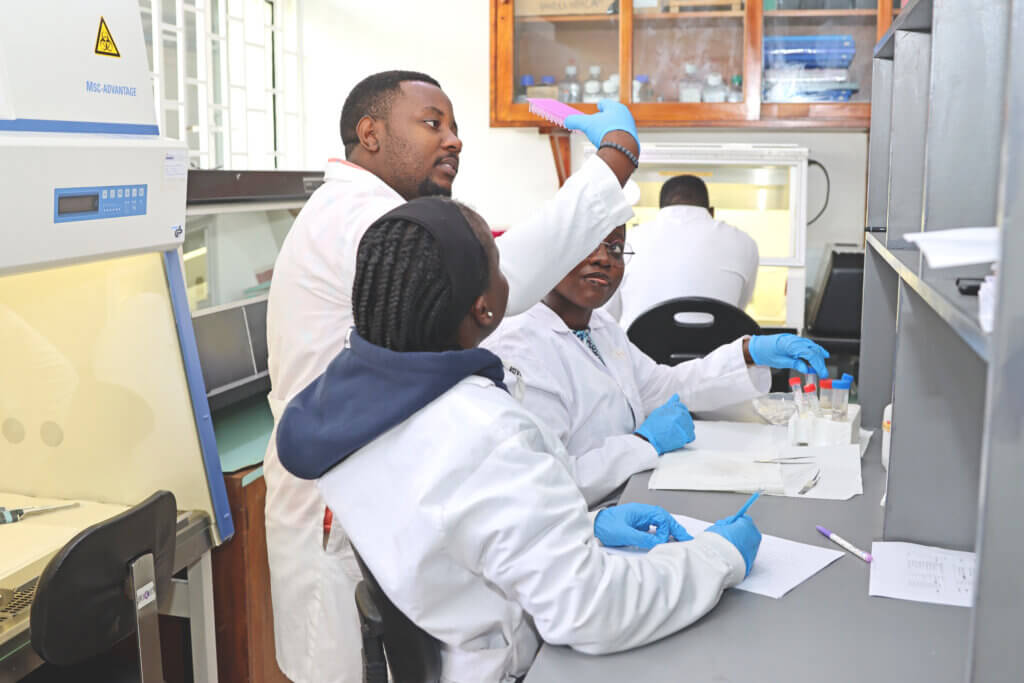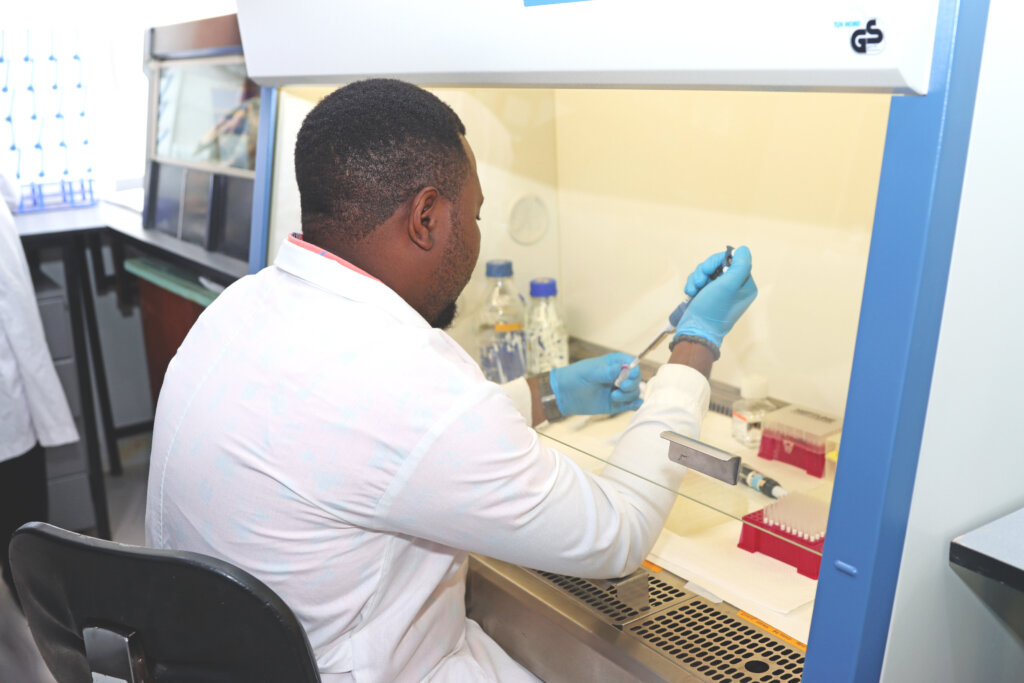A day in the life of a Laboratory Technologist at Target Malaria Uganda

When we think about the fight against malaria, the first images that often come to mind are mosquito nets, antimalarial drugs, and public health campaigns. However, behind the scenes, scientists are also among those who work tirelessly against malaria. Their work includes understanding mosquitoes, who carry malaria and transmit it to humans. I am a laboratory technologist, and I am privileged to contribute to the endeavour of malaria-free future.
My day begins with a routine check to ensure that all laboratory equipment such as freezers, air conditioners, and other essential devices are functioning properly. As I enjoy a cup of coffee, I take a few moments to check and respond to emails.
The next task on my list is typically the disinfection of all lab equipment and bench surfaces to maintain a clean and safe working environment.
My primary role is to support the project by performing laboratory assays on Anopheles gambiae mosquitoes collected from the field sites and reared in the insectary. I am responsible for receiving samples from our field sites, ensuring they are properly labelled, preserved under the correct conditions, and systematically archived in the laboratory for future analysis. Lastly, I am responsible for updating the sample inventory upon receipt of field-collected specimens. Laboratory work begins with morphological identification of mosquito species, followed by molecular procedures including DNA extraction and polymerase chain reaction (PCR) to determine species identity and diversity at field sites.
My favorite part of the job.
Getting results gives me satisfaction, but it does not always happen easily because our work involves technical troubleshooting and optimization to make laboratory procedures work as expected. I continuously discover new ways to lab procedures through both past experiences and the unique challenges that arise. Every day brings something new to the laboratory! I also find it incredibly rewarding to share my knowledge by training interns and assisting graduate students. Furthermore, I’ve taken part in collecting mosquito samples from our field sites, an experience I truly value.
How to become a lab technologist?
A genuine passion for the life sciences, along with a strong sense of imagination, curiosity, and patience, is essential for anyone pursuing this field. Personally, I seized every opportunity to seek mentorship, attend scientific talks, and participate in discussion groups. A turning point for me came during a career guidance open day at my high school. I was deeply inspired by a guest speaker from the Uganda Virus Research Institute, where I now have the privilege of working, who spoke about the vital role laboratory technologists play in advancing research, drug discovery, and product development. I worked hard to join the university and major in Biochemistry to realize my dream of better understanding and solving global health problems as a lab technologist.
The future of laboratory technology
Lab technologists are directly involved in the aspects of the fight against malaria by building and contributing to local capacity, to confidently confirm the molecular identity and diversity of malaria mosquitoes in our field sites. They are actively involved in research to develop new tools that aim to reduce the transmission of malaria. Lab technologists are also playing a part in responsible and accurate diagnosis of malaria infection which facilitates proper management of the illness and prevent development of resistance maintaining the relevance and usefulness of drugs in the fight against malaria.
The future of laboratory science lies in automation. We are already witnessing advancements such as automated DNA extraction systems and robotic pipetting. The role of artificial intelligence is also becoming increasingly significant. I believe laboratory technology will continue to grow in relevance, playing a critical role in addressing global health challenges.



